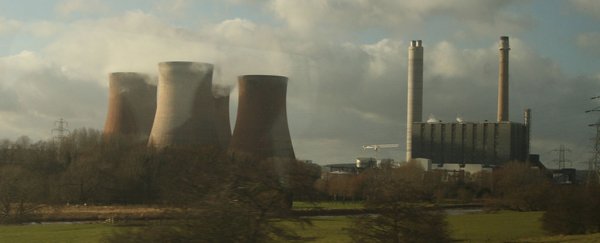The UK government has announced its intention to close all its coal-fired power stations by 2025 and restrict their use by 2023, just weeks ahead of the 2015 United Nations Climate Change Conference in Paris, where a binding and universal agreement on climate, from all the nations of the world, will be set.
By indicating that it will replace its coal-based electricity generation – which accounts for more than 20 percent of the UK's electricity needs – Britain is sending a big signal to the world that it will no longer rely on what Amber Rudd, Secretary of State for Energy and Climate Change, calls "the dirtiest fossil fuel".
"It cannot be satisfactory for an advanced economy like the UK to be relying on polluting, carbon-intensive 50-year-old coal-fired power stations," said Rudd in a speech announcing the change of direction. "Let me be clear: this is not the future. We need to build a new energy infrastructure, fit for the 21st century."
Coming as it does just before COP21, the United Nations conference on climate change, the announcement is intended to send a message to the international community that carbon emissions may be a global problem, but one which can only be remedied by localised, nation-wide actions.
"Our determination to cut carbon emissions as cost effectively as possible is crystal clear and this step will make us one of the first developed countries to commit to taking coal off our system," said Rudd.
But while the gesture is certainly a progressive step away from reliance on coal-based power, the UK is not intending to replace coal with wholly renewable energy sources. Wind power and a renewed focus on clean energy innovation are part of the new strategy, but at its heart lies a commitment to what can be gained by investments in nuclear power and gas-based power stations.
"In the next 10 years, it's imperative that we get new gas-fired power stations built," said Rudd. "Gas is central to our energy secure future. So is nuclear. Opponents of nuclear misread the science. It is safe and reliable. The challenge, as with other low carbon technologies, is to deliver nuclear power which is low-cost as well."
Another thing to note about the mooted closure of the UK's coal-based power stations is that the discontinuation will only take effect if new gas-based stations can cover the coal shortfall. And if coal power stations are able to successfully implement carbon capture and storage (CCS) measures, it's possible they won't be shut down at all.
But at the very least, Rudd's announcement that dirty coal has no future in the UK may help signal to the world that the fossil fuel is no longer a viable energy source for a world that wants to seriously reduce its carbon emissions – and with make-or-break climate negotiations just around the corner, every little bit counts.
